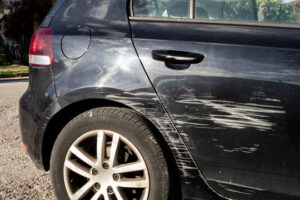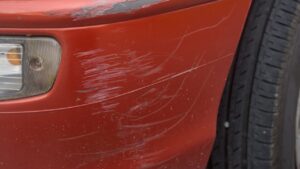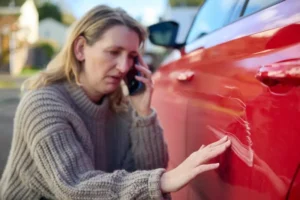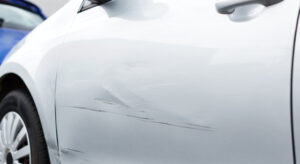
The Million Dollar Question: Do Car Insurance Cover Scratches and Dents?
Minor dents and ugly scratches — these marks can come out of the most ordinary events. Perhaps someone opened their car door wide open into a tight parking space or you have accidentally brushed a mailbox as you back out (which was one of the stories told by one of our team members). When you see the damage, the actual question should be, is this insured?
Although it would be nice to get a yes or no answer, insurance is not that easy. It will depend on the particular policy that you have and its coverages and also the source of the damage. It is important to find out before you make a claim or dip your hand in your wallet whether or not your policy is constructed to meet those life stumbling blocks and bumps of everyday driving.
Will Car Insurance Cover Scratches and Dents?
You might want to think scratch and dent — in theory you could have the scratch and dent covered by your auto insurance but only in certain situations with a certain coverage. Auto insurance is not a catch-all solution; it is a toolbox and tools to various applications.
It all depends on the methods of how the damage took place and what sort of covering you used to have prior to the damage. Your insurance company will estimate the reason, i.e. a deer, debris, or other driver, and use the corresponding policy provisions. What is important, in this case, is timing, activating policy, and the specific event.
So to speak, shall we dive into the details of each type of coverage and how they may aid in the removement of those irritating blemishes.

Comprehensive Coverage
The comprehensive coverage comes in when the damage does not arise out of a direct impact. It serves as a safety net to the unpredictable. It is the thought of falling branches, car theft, wild animals on the road.
You are driving through a forest and the deer crosses your path making you dent your fender. Or what happens when your car goes up in flames during an accident in a garage — Comprehensive coverage is what will see you through.
In all of the above, the cost to repair the scratch or dent might well be reimbursed should you carry that coverage. Indeed, as shown in the 2025 industry report, almost one third of non-collision claims are under Comprehensive coverage — testimony to its increased pertinence in the contemporary automobile insurance.
Collision Coverage
Collision coverage is the best defense when your automobile crashes banging into, or being crashed into, whether at fault or not. Whether it is a fender bender with some other vehicle, hitting a fence or a lamp post, this aspect of your insurance policy considers your car damaged.
Now we come back to that mailbox. Although it is not another car, it is a collision. In the case that such coverage is written into your policy, you may be able to claim the resulting scratches or dents, again, so long as the costs of repairing them are more than your deductible.
With the growing danger of driving in the city as we become stuck in tighter parking spaces and with more vehicles, Collision insurance has become hotter than ever. Low-speed hits happen more often than most people imagine, and they also commonly result in cosmetic harm.

Liability Coverage
Liability coverage cannot protect your car, but other people. Damage or injuries you cause to a third party is covered with this type of insurance that is required, by law, in most states.
However, there is a twist to it: in case another person damages your car, and he/she is obviously at fault, his/her Liability coverage will cover your bill. In other words, your injury is not covered by that individual, even in an extreme instance, like when another driver rear-ends your parked car, this person may wind up paying his or her policy on that dent or that scratch.
But this is complicated by the fact that the party responsible may be uninsured, or may dispute the claims. That is where the uninsured motorist cover comes in or some good knowledge of state statutes.

Your Deductible on Scratches and Dents
How Your Deductible Works
A deductible is what you have to pay out of pocket if you make a claim. As you select your insurance, you predetermine how much risk you want to take until your insurance takes precedence.
So going back to our previous example — your deductible is 500 dollars. What happens in case your mailbox scratch is worth fixing at 300 dollars, which is less than your deductible, meaning you will pay the entire sum. However, when the repair reaches 2,000 dollars then your insurance covers 1,500 dollars and you pay 500.
The dilemma here is psychological: should one file a claim to receive compensation over minor damages? Many claims can make your premiums go up. Therefore, motorists will tend to claim insurance against larger accidents and support minor conditions with their own pockets.
In the repair industry today, even a small dent or scratch costs more than a thousand dollars (2025 Report), and knowing how your deductible works could be the difference between being smart with money and unintentionally paying way too much.
Making a Claim with a Dent or Scratch
Take a step back before you jump into filing the claim and establish proof. Clear photographs, videos and testimonies (where possible) may help your case. When it involves a third party, getting a police report can be of great assistance.
Remain in constant touch with your insurer. The lack of open communication might lead to delays and misinterpretation. Although today many insurers provide mobile applications and virtual assistants that automate this process, it is still important that there is human input — particularly in the case of subtler cosmetic damages.
Pro tip: Take note of the damage when it occurs. Depending on the light and time of day, the presence of a dent or a scratch may even disappear, and this can influence the position of your adjuster.

The Dents and Dings Replied Back with Precision
None of us wants our vehicles to appear bad-looking — as they are not just transport, they are a personal statement as well. And in the case of damages, at least you can rest assured that there is one way of getting away. Your damaged door panel, dented bumper or any other scratch or similar will not turn into a financial nightmare in case your insurance policy is built right.
When you have enough coverage, and you know how your policy works, you will be in a good position to face life accidents. Just a minor cut now should not get you off track this week or your pocket.
This is why the next time that unlucky thud strikes, you can keep to the high road with preparation and understanding that you can be confident, covered, and ready to go to the repair booth.